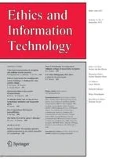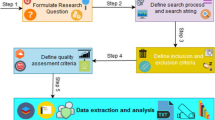Abstract
The information revolution has fostered the rise of new ways of waging war, generally by means of cyberspace-based attacks on the infrastructures upon which modern societies increasingly depend. This new way of war is primarily disruptive, rather than destructive; and its low “barriers to entry” make it possible for individuals and groups (not just nation-states) easily to acquire very serious war-making capabilities. The “less lethal” appearance of information warfare and the possibility of “cloaking” the attacker's true identity put serious pressure on traditional just war doctrines that call for adherence to the principles of “right purpose”, “duly constituted authority”, and “last resort”. Age-old strictures about noncombatant immunity are also attenuated by the varied means of attack enabled by advanced information technologies. Therefore, the nations and societies leading the information revolution have a primary ethical obligation to constrain the circumstances under which information warfare may be used -- principally by means of a pledge of “no first use” of such means against noncombatants.
Similar content being viewed by others
Author information
Authors and Affiliations
Rights and permissions
About this article
Cite this article
Arquilla, J. Can information warfare ever be just?. Ethics and Information Technology 1, 203–212 (1999). https://doi.org/10.1023/A:1010066528521
Issue Date:
DOI: https://doi.org/10.1023/A:1010066528521



